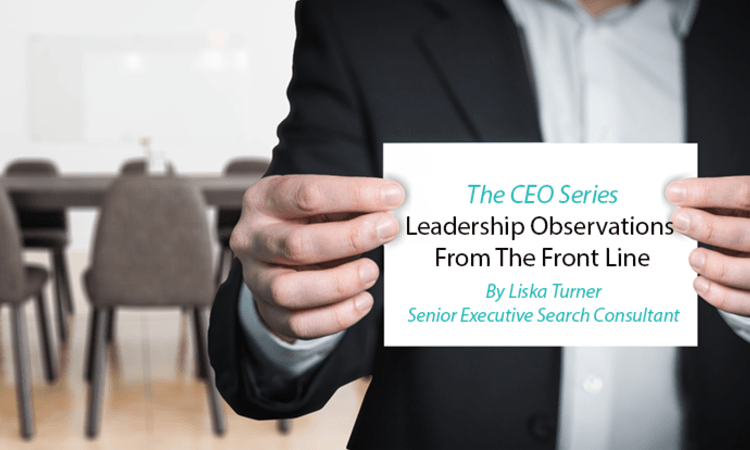The CEO Series: Q&A with Jim Hungerford, CEO at The Shepherd Centre
The CEO Series: Leadership Observations From The Front Line Interviews with CEO'S from the For-Purpose sector with Liska Turner
For-Purpose leaders are as diverse as the organisations that they lead. Every couple of months I sit down with a CEO where they share their experiences and thoughts on leading a for-purpose organisation. This month I had the pleasure of talking to Jim Hungerford, CEO at Shepherd Centre.
Interviews with CEO'S from the For-Purpose sector with Liska Turner
For-Purpose leaders are as diverse as the organisations that they lead. Every couple of months I sit down with a CEO where they share their experiences and thoughts on leading a for-purpose organisation. This month I had the pleasure of talking to Jim Hungerford, CEO at Shepherd Centre.
Jim Hungerford, CEO at Shepherd Centre

Jim Hungerford is the Chief Executive Officer of The Shepherd Centre, a charity that helps deaf or hearing impaired children to listen and speak.
Jim began his career as a vet in private practice in Australia and the UK, then joined Biotech Australia, helping to pioneer vaccines for pets and cattle before moving into business development and marketing. Following four years at the helm of UK business Intervet, Jim made the life-changing decision to join Pareto Fundraising as CEO, and move into the not-for-profit sector in Australia.
In 2011, Jim joined The Shepherd Centre as CEO, and regularly boasts to colleagues and friends that he has “the best job in the world”.
Q: CEO’s lead from the front. What are the most important decisions you make as a leader of your organisation?
A: The decisions that make the biggest impact on the organisation are those that determine how we work towards our mission and how we work together as a team. I don’t make these decisions alone but they are the critical ones. Deciding on our key strategies – ensuring that all major activities need to be focussed on how they contribute to our mission; and on the standards of performance and behaviour we expect from each other – ensuring that the way we work reflects our values and mission; these drive our success. Without these two areas of focus The Shepherd Centre could not have achieved the outstanding results it has.
Q: Culture was identified as a priority for 2018 in the 2017 AICD NFP Governance and Performance Study. How do you help a new employee understand the culture of your organisation?
A: The way we work and the behaviour we expect are public topics of discussion at The Shepherd Centre. We always keep in mind that everything we do must assist towards our goal of every child with hearing loss being able to achieve their potential through their spoken language; and that the way we behave must support our core concept of “family-friendly but professional”. I meet with all new employees to talk about what we do, how & why; we have Charters for the behaviour of our staff and managers; and we talk about behaviour in all our major staff meetings.
Q: No business operates in isolation. When you’re considering partnering with another person or business, what factors are deal-breakers for you?
A: Whether that association positively contributes to achieving our mission of every child with hearing loss being able to use their listening and spoken language to achieve their potential in life. If we believe an association will decrease our ability to deliver on this – due to distraction, conflicting values or cultures, or other reasons – we would not go ahead.
Q: Succession planning is key to building a sustainable organisation. How do you choose who to promote?
A: We are a merit-based organisation. New opportunities are normally advertised internally as well as externally; and many of our staff have a nominated individual responsibility area in addition to their normal role. Their performance in these ‘out of the box’ situations contributes to their prospects for promotion. As a small organisation we don’t have many opportunities for staff management promotions so we have specifically designed career advancement paths based on professional skills, in addition to the staff management ones.
Q: The role of CEO is quite unique. What advice would you give someone going into a CEO leadership position for the first time?
A: Be prepared to take on the worries of the entire organisation on your shoulders whilst maintaining a positive and inclusive attitude. A leader needs to be honest with their team but also always projecting confidence and commitment. This can be a hard balance to achieve when things aren’t going to plan, but your team will not be able to give their best if they see you ‘losing it’.
Q: What leadership decision are you most proud of?
A: It isn’t a single decision, but instead my ongoing decision and actions to always support the advancement of the people in my team to the peak of their abilities. In both my commercial and not-for-profit life I’ve always acted on the belief that the best way to succeed is to support the success of those you work with. This can sometimes be hard – to ensure the success of one of your team rather than yourself – but I’ve seen consistent benefits from it and as I result I’ve been very proud to head up many outstanding high-performing teams.
Liska Turner is an executive recruiter that specialises in the For-Purpose Sector. She works with Boards and CEO’s to build sustainable organisations through connecting people and ideas. She can be contacted at liska@beaumontpeople.com.au or 02 9279 2777.
Share This blog
Recent Articles










